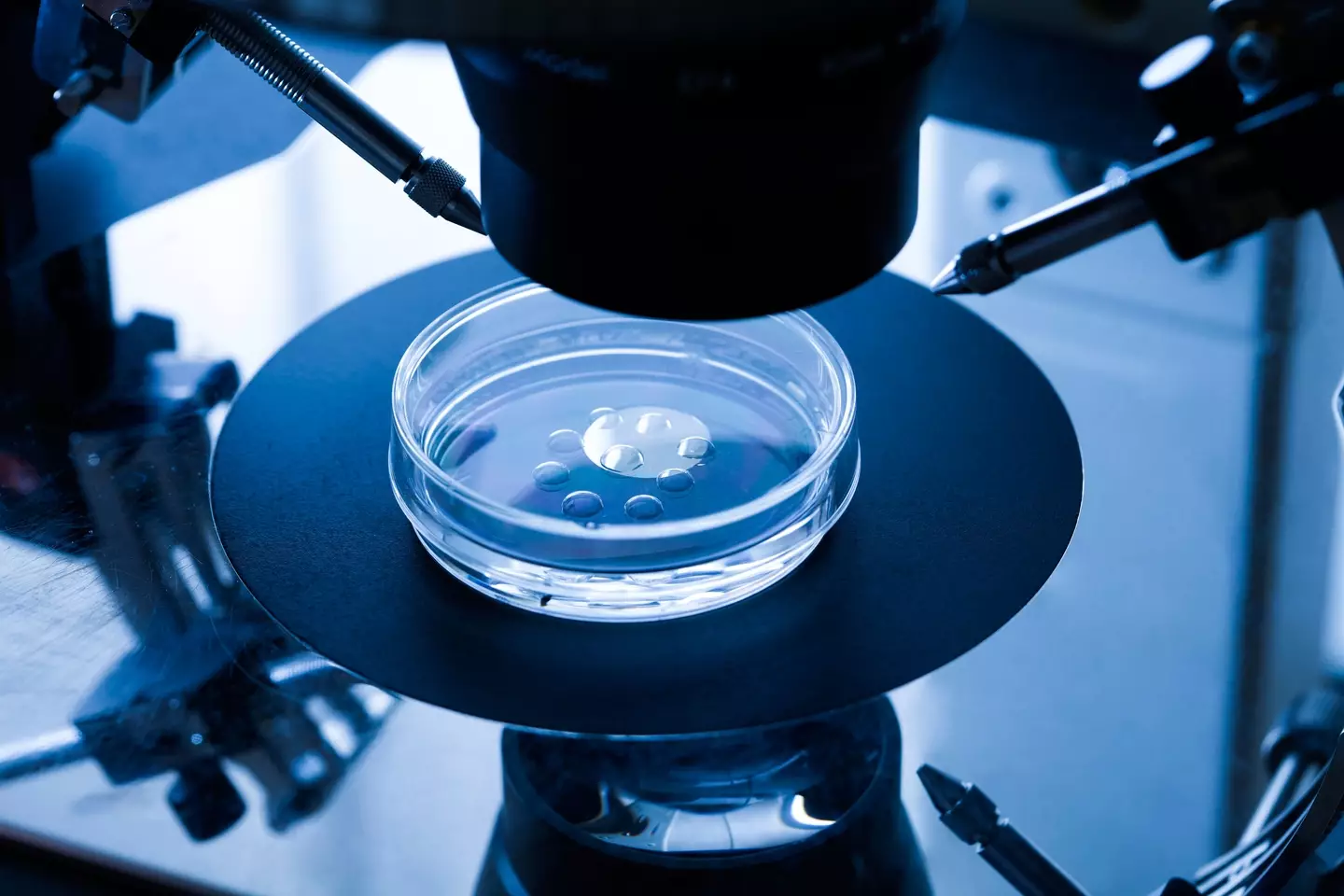
A woman has revealed she’s a triplet, despite being four years younger than her older twin sisters.
Watch her explain the situation’s ins and outs below:
TikTok user @maximumstrengthpepto, aka Shelby, told her followers that it all started when her mum underwent IVF in the 90s.
Advert
Although her mum used some of the embryos at the time - giving birth to Shelby’s 32-year-old sisters Courtney and Becca - half of the embryos remained frozen.
Years later, Shelby’s parents decided to try to have another child, despite doctors warning them success rates were low seeing as the embryos had been frozen for so long.
Incredibly, Shelby ended up being born. She told her followers: “The doctor told my mum that it would never work because they were frozen for way too long, but that ended up being me, I’m a miracle.”
So technically, Shelby and her sisters Becca and Courtney are fraternal triplets, because they were conceived at the same time.
IVF stands for in vitro fertilisation and is a popular technique used to help those with fertility issues conceive.
The NHS website details the procedure as follows: “During IVF, an egg is removed from the woman's ovaries and fertilised with sperm in a laboratory.
“The fertilised egg, called an embryo, is then returned to the woman's womb to grow and develop.
“It can be carried out using your eggs and your partner's sperm, or eggs and sperm from donors.”

Last year, Shanna Swan - a professor of environmental medicine and public health at Mount Sinai school of medicine in New York City - predicted that by 2045 most couples will reply on assisted reproduction.
Speaking to The Guardian, she said: "It is serious. If you follow the curve from the 2017 sperm-decline meta-analysis, it predicts that by 2045 we will have a median sperm count of zero.
"It is speculative to extrapolate, but there is also no evidence that it is tapering off. This means that most couples may have to use assisted reproduction."
The reason behind low sperm counts? Swan pointed to phthalates - which are chemicals used to make plastic flexible.
Phthalates can lower testosterone levels and are used often throughout the food production and packaging process.
Swan explained: “I am directly speaking to this hidden problem people don't like to talk about, which is their sub-fertility or reproductive problems, and how that is tied to the environment.
"People are recognising we have a reproductive health crisis, but they say it's because of delayed childbearing, choice or lifestyle - it can't be chemical. I want people to recognise it can.”
Topics: Science